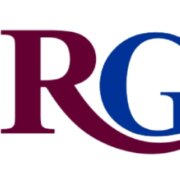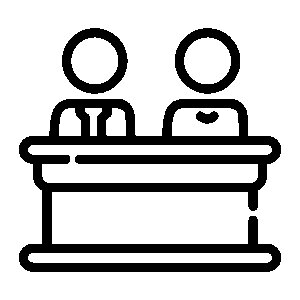Best Adoption Lawyers in Botswana
Share your needs with us, get contacted by law firms.
Free. Takes 2 min.
Free Guide to Hiring a Family Lawyer
Or refine your search by selecting a city:
List of the best lawyers in Botswana
About Adoption Law in Botswana
Adoption in Botswana is a legal process that establishes a permanent parent-child relationship between individuals who are not biologically related. Governed primarily by the Adoption of Children Act, the process is designed to serve the best interests of the child, ensuring they are placed in a stable, nurturing environment. The law provides clear guidelines on the rights and responsibilities of adoptive parents, and it aims to protect the welfare of the children involved in such arrangements.
Why You May Need a Lawyer
Seeking legal assistance when dealing with adoption in Botswana can be crucial for several reasons. Firstly, an adoption lawyer can guide prospective adoptive parents through the complex legal framework, helping them understand their rights and obligations. Legal help may also be needed to prepare and submit necessary documentation accurately and on time. Furthermore, a lawyer can be essential in navigating sensitive issues such as international adoptions, contested adoptions, or cases that involve the termination of biological parents' rights.
Local Laws Overview
The Adoption of Children Act is the primary legislation governing adoption in Botswana. Key aspects include:
- Eligibility: Prospective adoptive parents must meet certain criteria concerning age, financial stability, and moral character.
- Consent: The biological parents or legal guardians must typically consent to the adoption unless they have relinquished their rights or have been deemed unfit by the court.
- Home Study: A thorough assessment by social services is mandatory to evaluate the suitability of the prospective adoptive household.
- Legal Process: The adoption must be approved by a court, which will consider the child’s best interests above all else.
- Post-Adoption: Adoption is usually final, and the adopter assumes all parental rights and responsibilities as if they were the biological parent.
Frequently Asked Questions
1. Who can adopt a child in Botswana?
Any individual who is at least 25 years of age and at least 21 years older than the child can apply to adopt. There are exceptions, especially in cases of step-parent or familial adoptions.
2. Can foreigners adopt a child in Botswana?
Yes, foreign nationals can adopt, but they must meet specific legal requirements and demonstrate an ability to provide for the child’s wellbeing.
3. What is the procedure for adopting a child in Botswana?
The adoption process involves several steps, including application submission, background checks, home studies, obtaining consent, and court deliberations to finalize the adoption.
4. Is it possible to adopt a relative's child?
Yes, it is possible to adopt a relative's child, but all legal steps must be followed, and the court must be satisfied that the adoption is in the child's best interests.
5. How long does the adoption process take in Botswana?
The duration can vary, often taking several months to a year, depending on case complexity and court availability.
6. What happens if the biological parents do not consent?
A court must usually assess the refusal of consent. If it deems the biological parents unfit or if their rights have been terminated, adoption can proceed without consent.
7. Are there any fees associated with adopting a child?
Yes, there are legal, administrative, and possible agency fees involved. The costs can vary based on the details of each case.
8. Can adoptions be contested after they are finalized?
Typically, once an adoption is finalized by the court, it cannot be contested. However, exceptions may apply, depending on specific circumstances such as fraud or duress.
9. Does a child need to give consent for adoption?
If the child is over a certain age, typically 10 years or older, their views may be sought and considered in the adoption process.
10. What support is available after the adoption?
Post-adoption support can include counseling services and community support groups to help families adjust to their new dynamics.
Additional Resources
For more information on adoption in Botswana, these resources can be beneficial:
- The Ministry of Local Government and Rural Development: Responsible for child welfare services.
- Local NGOs and community groups focusing on children's rights and welfare.
- Legal Aid Botswana: Provides assistance for those unable to afford legal representation.
Next Steps
If you need legal assistance with adoption in Botswana:
- Consult Legal Experts: Seek advice from a lawyer specializing in family or adoption law to get personalized guidance.
- Gather Documentation: Collect all necessary documents, such as birth certificates, consent forms, and financial statements.
- Work with Social Services: Engage with local social services early to understand the assessment process.
- Attend Court Hearings: Be prepared to attend court sessions as required for the adoption proceedings.
Lawzana helps you find the best lawyers and law firms in Botswana through a curated and pre-screened list of qualified legal professionals. Our platform offers rankings and detailed profiles of attorneys and law firms, allowing you to compare based on practice areas, including Adoption, experience, and client feedback.
Each profile includes a description of the firm's areas of practice, client reviews, team members and partners, year of establishment, spoken languages, office locations, contact information, social media presence, and any published articles or resources. Most firms on our platform speak English and are experienced in both local and international legal matters.
Get a quote from top-rated law firms in Botswana — quickly, securely, and without unnecessary hassle.
Disclaimer:
The information provided on this page is for general informational purposes only and does not constitute legal advice. While we strive to ensure the accuracy and relevance of the content, legal information may change over time, and interpretations of the law can vary. You should always consult with a qualified legal professional for advice specific to your situation.
We disclaim all liability for actions taken or not taken based on the content of this page. If you believe any information is incorrect or outdated, please contact us, and we will review and update it where appropriate.
Browse adoption law firms by city in Botswana
Refine your search by selecting a city.















